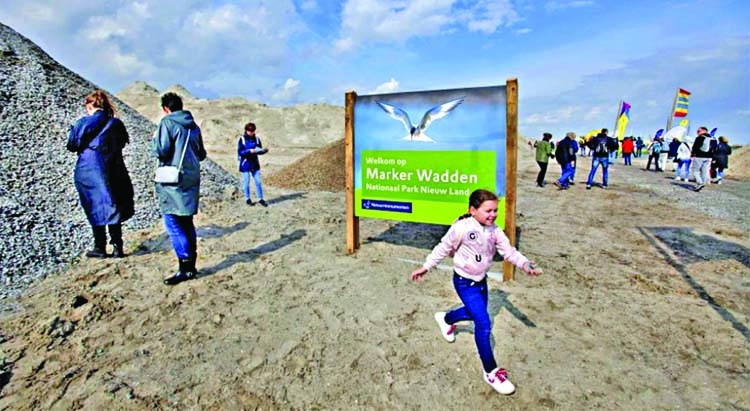Dutch build artificial islands to bring wildlife back

Dutch ranger Andre Donker sighs as he looks out at the rippling grey waters of the Markermeer, one of Europe's largest freshwater lakes."Once upon a time it was teeming with fish here," he says.
This vast 700 sq km expanse of water, which regulates the level of water in the rest of the Netherlands, had until recently been nothing more than a cloudy mass devoid of aquatic life. Now, the hope is that a new artificial archipelago of five islands will bring nature back to the area via a typically ambitious engineering project for a low-lying country that has battled the sea for centuries.
It is "one of the largest rewilding operations in Europe", says Donker. Standing on a wooden bridge over a pond in the middle of experimental plots of different kinds of reeds, he says he has been able to see the first signs of increasing biodiversity.
The lake was once part of the Zuiderzee, an engineering wonder of the world completed in 1932, which closed off a huge expanse of water to keep out the North Sea and combat flooding. Vital in a country where 26 per cent of the land is below sea level, the scheme created an inland lake and polders, land reclaimed from the sea, but at a cost to the environment.
Over the subsequent decades, sediment used to create a dyke separating the Markermeer from a neighboring body of water, the Ijsselmeer, washed away and sank to the bottom of the lake. That turned the water cloudy, negatively impacting fish and bird populations, plants and molluscs. "We had to intervene," says Donker, wearing a woollen hat to brave the storms from the North Sea.
The solution was a bold one, in keeping with a country whose people like to boast that "God created the world, but the Dutch created the Netherlands". Eight kilometres from the port of Lelystad, the ranger walks down the side of an artificial sand dune. Other similar dunes stretch out beyond it as far as the eye can see.
Still-sparse vegetation covers a large part of the 700ha that have been built anew in the lake.The islets plan is among many being worked on by the Netherlands, which is one of the most vulnerable countries in the world to climate change.
Since October, the port city of Rotterdam has hosted the headquarters of an international climate commission led by former UN secretary-general Ban Ki-moon and Microsoft founder and climate activist Bill Gates.
